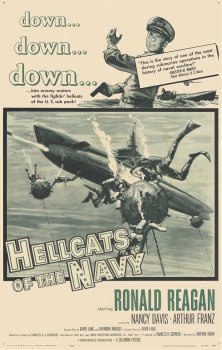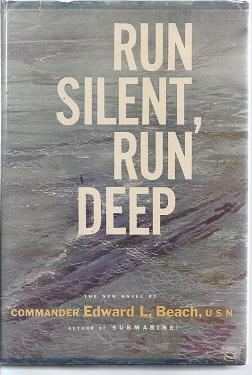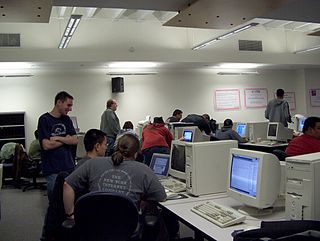
A hobby is considered to be a regular activity that is done for enjoyment, typically during one's leisure time. Hobbies include collecting themed items and objects, engaging in creative and artistic pursuits, playing sports, or pursuing other amusements or avocations. Participation in hobbies encourages acquiring substantial skills and knowledge in that area. A list of hobbies changes with renewed interests and developing fashions, making it diverse and lengthy. Hobbies tend to follow trends in society. For example, stamp collecting was popular during the nineteenth and twentieth centuries as postal systems were the main means of communication; as of 2024, video games became more popular following technological advances. The advancing production and technology of the nineteenth century provided workers with more leisure time to engage in hobbies. Because of this, the efforts of people investing in hobbies has increased with time.

U-505 is a German Type IXC submarine built for Germany's Kriegsmarine during World War II. It was captured by the United States Navy on 4 June 1944 and survives as a museum ship in Chicago.

Hellcats of the Navy is a 1957 American black-and-white World War II submarine film drama from Columbia Pictures, produced by Charles H. Schneer and directed by Nathan Juran. The film stars Ronald Reagan and his wife, billed under her screen name Nancy Davis, and Arthur Franz. This was the only feature film in which the Reagans acted together, either before or after their 1952 marriage.

USS Dallas (SSN-700) is a Los Angeles-class nuclear-powered attack submarine of the United States Navy. She was the Navy's second vessel of that name, and the first to be named after the city of Dallas, Texas. The first Dallas, a destroyer, was named for 19th century US Naval officer Captain Alexander Dallas. Another two ships with the name were scheduled but never completed. On 4 April 2018, after nearly 37 years of commissioned service, the boat was decommissioned at the Controlled Industrial Area of Puget Sound Naval Shipyard. The defueled vessel will eventually undergo recycling.

The Balao class was a design of United States Navy submarine used during World War II, and with 120 boats completed, the largest class of submarines in the United States Navy. An improvement on the earlier Gato class, the boats had slight internal differences. The most significant improvement was the use of thicker, higher yield strength steel in the pressure hull skins and frames, which increased their test depth to 400 feet (120 m). Tang actually achieved a depth of 612 ft (187 m) during a test dive, and exceeded that test depth when taking on water in the forward torpedo room while evading a destroyer.

Edward Latimer Beach Jr. was a United States Navy submarine officer and author.
Gruppe 47 was a group of participants in German writers' meetings, invited by Hans Werner Richter between 1947 and 1967. The meetings served the dual goals of literary criticism as well as the promotion of young, unknown authors. In a democratic vote titled "Preis der Gruppe 47", it elevated many who were beginning their writing careers. Group 47 had no organizational form, no fixed membership list, and no literary program, but was strongly influenced by Richter's invitations.

Groton is a town in New London County, Connecticut, United States, located on the Thames River. It is the home of General Dynamics Electric Boat, which is the major contractor for submarine work for the United States Navy. The Naval Submarine Base New London is located in Groton, and the pharmaceutical company Pfizer is also a major employer. Avery Point in Groton is home to a regional campus of the University of Connecticut. The town is part of the Southeastern Connecticut Planning Region. The population was 38,411 at the 2020 census.

Run Silent, Run Deep is a novel by Commander Edward L. Beach Jr. published in 1955 by Henry Holt & Co. The story describes World War II submarine warfare in the Pacific Ocean, and deals with themes of vengeance, endurance, courage, loyalty and honor, and how these can be tested during wartime. The name refers to "silent running", a submarine stealth tactic.

Personal web pages are World Wide Web pages created by an individual to contain content of a personal nature rather than content pertaining to a company, organization or institution. Personal web pages are primarily used for informative or entertainment purposes but can also be used for personal career marketing, social networking with other people with shared interests, or as a space for personal expression.
Parallax Inc. is a privately held company in Rocklin, California. Parallax Inc. designs, manufactures, and sells BASIC Stamp microcontrollers, Propeller microcontrollers, microcontroller accessories, educational robot kits, and educational curriculum.

The Kelly Writers House is a mixed-use programming and community space on the campus of the University of Pennsylvania in Philadelphia.
A personal submarine is a submarine, usually privately funded and constructed, which is usually primarily intended for recreational use.

InformationWeek is a digital magazine which conducts corresponding face-to-face events, virtual events, and research. It is headquartered in San Francisco, California and was first published in 1985 by CMP Media, later became part of Informa TechTarget. The print edition of the magazine has ceased, with the last issue published on June 24, 2013.

Interex EMEA was the EMEA HP Users Organisation, representing the user community of Hewlett-Packard computers.
The Microscopy Society of America (MSA), founded in 1942 as The Electron Microscope Society of America, is a non-profit organization that provides microanalytical facilities for studies within the sciences. Currently, there are approximately 3000 members. The society holds an annual meeting, which is usually held in the beginning of August. It has 30 local affiliates across the United States. The society has a program for examining and certifying technologists of electron microscopes. The organization produces two journals: Microscopy Today, and Microscopy and Microanalysis. As of 2024, the President is Jay Potts.

The Purdue Memorial Union (PMU) is a student union building located on the Purdue University campus in West Lafayette, Indiana, USA. It opened in 1924 as a memorial to the Purdue students who had fought in World War I. The building includes several restaurants, lounges, and student organization offices, as well as a bowling alley and a hotel.

A Linux User Group or Linux Users' Group (LUG) or GNU/Linux User Group (GLUG) is a private, generally non-profit or not-for-profit organization that provides support and/or education for Linux users, particularly for inexperienced users. The term commonly refers to local groups that meet in person but is also used to refer to online support groups that may have members spread over a very wide area and that do not organize, or are not dependent on, physical meetings. Many LUGs encompass FreeBSD and other free-software / open source Unix-based operating systems.
The Lindauer Psychotherapiewochen (LP) are specialist conferences primarily intended as further training for doctors, psychologists, and child and youth psychotherapists, especially in the field of psychodynamic psychotherapy. These conferences span one-week and have been held annually in April, in Lindau, since 1950. Since 1967, organization of the conference has been run by the Vereinigung für psychotherapeutische Fort- und Weiterbildung.
Get Off My Internets, also known as GOMI or GOMIBLOG, is a website devoted to critiques of online personalities, particularly bloggers. Founded by Alice Wright in 2009, GOMI is an anti-fan site that has a reputation for vicious criticism and cyberbullying.













